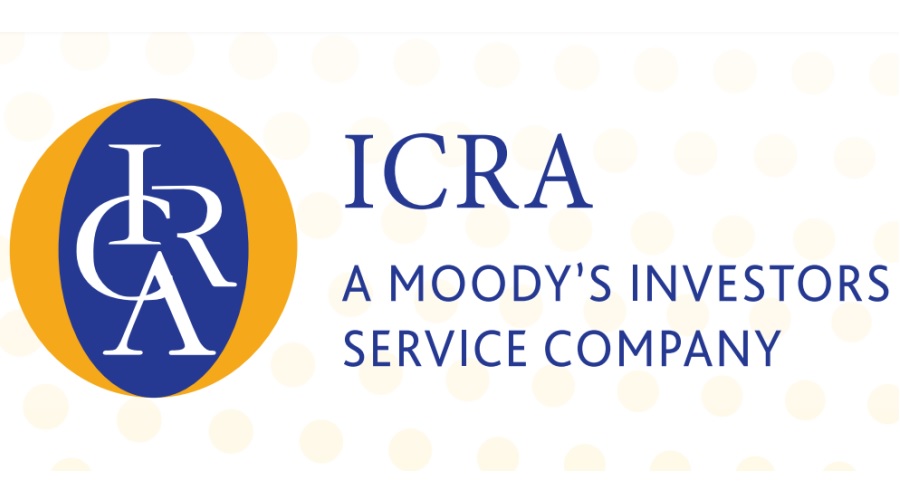 Bansal Roofing Products Ltd Q3 FY2026 profit jumps to Rs. 3.57 crore
Bansal Roofing Products Ltd Q3 FY2026 profit jumps to Rs. 3.57 crore Cyber Media India Ltd consolidated Q3 FY2025-26 net profit at Rs. 20.11 lakhs
Cyber Media India Ltd consolidated Q3 FY2025-26 net profit at Rs. 20.11 lakhs D P Abhushan Ltd posts Rs. 73.35 crores PAT in Q3 FY2026
D P Abhushan Ltd posts Rs. 73.35 crores PAT in Q3 FY2026 Granules India Ltd consolidated Q3FY26 PAT climbs to Rs. 150.21 crores
Granules India Ltd consolidated Q3FY26 PAT climbs to Rs. 150.21 crores Advani Hotels and Resorts India Ltd Q3FY26 profit at Rs. 10.77 crores
Advani Hotels and Resorts India Ltd Q3FY26 profit at Rs. 10.77 crores
Research
Domestic primary aluminium manufacturing entities are behind the curve in the transition to a greener future: ICRA
Posted On : 2023-03-13 14:47:21( TIMEZONE : IST )

ICRA highlighted that domestic aluminium manufacturers have the highest carbon intensity of nearly 17-20t CO2e/tonne of aluminium, owing to the significant use of coal in generating captive power, and would require substantial enhancement in their renewable energy (RE) or low carbon-intensive power sources to meet their ambitious targets of ~25% reduction in carbon emissions in the next five-seven years and achieve net-zero status by 2050. According to an ICRA note on the primary aluminium industry, this could entail significant capital investments of up to $5 billion by 2030 and $20 billion by 2050, depending on the RE mix used. However, instead of doing an upfront capex, entities may choose to sign power purchase agreements to secure RE power. Nonetheless, their cost of metal production is expected to rise significantly. According to the note, the carbon intensity of Chinese aluminium producers also remains high due to increased coal usage. However, aluminium entities operating in western economies have gradually switched to lower carbon-intensive hydro power with almost 60% lower carbon intensity, compared to their Asian counterparts.
Elaborating further on the same, Mr Jayanta Roy, Senior Vice-President and Group Head, Corporate Sector Ratings, ICRA, said, "Globally, aluminium remains the second highest greenhouse gas (GHG) emitting metal after steel, primarily due to its high power consumption in the smelting process. To decarbonise the primary aluminium industry, significant usage of RE power in the entire value chain would be a prerequisite. However, green aluminium's cost of production is estimated to increase by $250-300/tonne, as an integration of a higher share of RE would require storage capacity, including battery energy storage systems (BESS), to manage the intermittency associated with wind and solar power. Consequently, the higher cost of production would necessitate a significant premium over the current realisation."
Apart from enhancing renewable energy capacities, an additional lever for decarbonisation would be to increase the share of secondary production through higher usage of scrap, which will necessitate an improvement in domestic aluminium scrap collection, as carbon emission from secondary production is significantly lower compare to the primary route. Though secondary production contributes ~38% to the total aluminium production in India, currently a major part of this scrap source is imported. Any restriction on scrap movement globally could pose a challenge to the uninterrupted supply of imported scrap. Consequently, domestic scrap collection rates and technologies to improve the cost-effectiveness of metal produced through recycling need improvement. Hindalco Industries Limited recently announced the setting up of a recycling unit and a segregator for aluminium and copper in Gujarat, which reflects the industry's intent towards improving scrap collection infrastructure.
In addition, technologies to reduce process emission like carbon capture and storage, inert anode and fuel switching in calcination are at early stages and may take some time to be ready for mass adoption, including in India.
Globally, the demand for greener aluminium is expected to significantly increase in the medium term, especially from automotive OEMs having ambitious carbon abatement targets. Also, the recent agreement undertaken by the European Union to impose a tax on imports of most energy-intensive industries like aluminium and steel from January 2026, augurs well for the low-carbon aluminium demand. As per the agreement, the importers should start reporting the GHG emissions associated with imports from October 2023.
"India exported around 0.5 mmt (20% of total export) of primary aluminium to European countries in FY2022. Consequently, the announcement would significantly impact the export competitiveness of the domestic entities in the medium term, in case the emission level remains unabated," Mr Roy reiterated.
Shares of ICRA Limited was last trading in BSE at Rs. 4676.05 as compared to the previous close of Rs. 4648.60. The total number of shares traded during the day was 81 in over 58 trades.
The stock hit an intraday high of Rs. 4790.00 and intraday low of 4630.60. The net turnover during the day was Rs. 382491.00.
